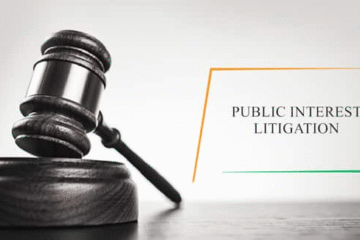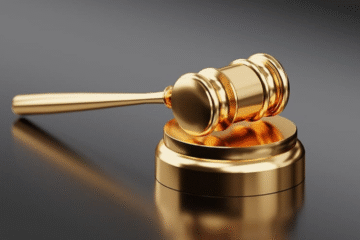This article is written by Soumya Chaware of University of Mumbai Law Academy, an intern under Legal Vidhiya

Abstract
“Parliamentary privileges” are the rights, benefits, and perks that the Houses of Parliament and their Members enjoy while doing their official duties. These rights are intended to relieve parliamentarians of the fear of intimidation, punishment, or other impediments while they do their duties. These privileges constitute an exemption to general law.
Parliamentary sovereignty holds that the legislature of a country has the final say over the creation, modification, and repeal of laws. This essay will define parliamentary sovereignty, go over some countries that support it, and analyze the advantages and disadvantages of this tactic.
The idea of parliamentary sovereignty, sometimes referred to as legislative supremacy or parliamentary supremacy, is established in the constitution of some parliamentary democracies. It affirms that the legislature is superior to the executive and judicial departments of government, among other branches, and that it has total sovereignty.
The Legislative Assembly and the parliament are not allowed to operate as ordinary courts of law, even if they are free to exercise their rights, privileges, and immunities. We could draw the conclusion that the supremacy of the Constitution supersedes parliamentary sovereignty since it protects the rights and freedom of the people to live.
Keywords: Parliament, Sovereignty, Privileges, Constitution, Legislature, Executive, Judiciary.
Introduction
The powers, advantages, and immunities that the Houses of Parliament and their Members enjoy while carrying out their duties are referred to as “parliamentary privileges.” These privileges, which are an exception to general law, are meant to free parliamentarians from the fear of intimidation, punishment, or other obstacles as they carry out their duties.
“Parliamentary privilege is the culmination of specific privileges that each House as a whole and each House member as an individual have, without which they are unable to carry out their respective duties, and which surpass those held by other entities or people. A few privileges are based only on parliamentary law and custom, whereas others have been outlined in legislation.
According to the theory of parliamentary sovereignty, a nation’s legislature has the ultimate power to enact, amend, and abolish laws. This article will define parliamentary sovereignty, discuss certain nations that adhere to this theory, and weigh the benefits and drawbacks of this strategy.
In certain parliamentary democracies, the concept of parliamentary sovereignty, also known as parliamentary supremacy or legislative supremacy is enshrined in the constitution. It maintains that the legislative body is superior to all other branches of government, including the executive and judicial branches, and that it possesses complete sovereignty.
The fundamental tenet of parliamentary sovereignty is that Parliament is the highest legislative body in the nation and that no other body may question or override any of its laws save for a subsequent act of Parliament.
In actuality, this implies that Parliament has the authority to enact laws on whatever topic it pleases, and that laws must be upheld by the courts regardless of their perceived fairness. It also implies that the democratic process can be used to hold the government responsible and that it is answerable to Parliament.
What is parliamentary privilege?
Members of some legislatures are granted legal immunity known as “parliamentary privilege,” which shields them from civil or criminal accountability for certain acts or remarks they make while carrying out their legislative duties. It is typical in nations where the Westminster system serves as the foundation for the constitution.
No specific legislation has been passed by Parliament to fully codify all of the privileges. Instead, they draw from five sources:
- Constitutional provisions
- Several laws passed by the legislature
- Guidelines for both Houses
- Parliamentary procedures
- The interpretations of judges
Parliamentary Privileges Provisions in Indian Constitution:
Articles 105 and 122 of the Indian Constitution delineate the privileges of Parliament, whereas Articles 194 and 212 concern the privileges of state governments.
Article 105: Speech in the Parliament shall be free. No member of Parliament may be held accountable for statements made or votes cast in the Parliament or any of its committees in any court proceedings. Powers, privileges, etc. of the Houses of Parliament and of the members and committees thereof” are the subjects of this document.
It comprises four clauses.
- There must be freedom of speech in Parliament, subject to the provisions of this Constitution and the rules and standing orders governing the Parliamentary process.
- No member of Parliament may be held legally liable for anything he says or votes on in Parliament or its committees, and no one may be held legally liable for anything published by either House of Parliament or acting under its authority regarding any report, paper, vote, or procedure.
- Other than that, each House of Parliament, as well as its members and committees, shall have the powers, privileges, and immunities that may from time to time be defined by Parliament through legislation. Until such time that definition is established, the powers, privileges, and immunities of each House and its members and committees shall be those of that House prior to the implementation of section 15 of the Constitution (Forty-fourth Amendment) Act, 1978.
- The provisions of clauses (1), (2), and (3) shall be applied to individuals who, as members of Parliament, are entitled to speak in a House of Parliament or any committee thereof, as well as to participate in other aspects of its activities.
Article 122: No court may contest the legitimacy of any proceedings in Parliament on the grounds of any procedural irregularities.
Article 194: The State Legislature shall be a free speech environment. No State Legislature member shall be subject to legal action in any court regarding anything said or any vote cast by him in a committee of the State Legislature.
Article 212: No court may examine the legitimacy of any proceedings in the State Legislature on the grounds of purported procedural irregularities.
Utilization of Privileges in Parliament
- The usage of the parliamentary privileges are as follows:
- The privileges granted support the preservation of the members of Parliament’s honor, dignity, and power.
- The rights, exemptions, and immunities granted to members of parliament houses and parliament committees ensure the efficacy of decisions made by them.
- These privileges protect the members of the Parliament from any form of impediment to their ability to perform their duties.
Categories of Privileges in Parliament
There are two primary categories into which the privileges of Parliament are divided.
Group/Combined advantages
- The first benefit of the collective privilege is the capacity or authority to hold discussions, release documents, or hold hearings. Moreover, being able to prevent others from doing so.
- Keeping outsiders out of the room so that any new problems can be resolved.
- Establishing and adhering to your own set of guidelines for managing business operations.
- The ability to get prompt notice of the member’s conviction, arrest, detention, and release.
Personal advantages
- No member may be detained for forty days before to or following a session of parliament. Keep in mind that this protection is limited to civil cases.
- The freedom to free expression is another benefit of being a member of parliament.
| Personal Advantages | Combined Advantages |
| 40 days prior to the start of a session and 40 days following its conclusion, members of Parliament are not permitted to be arrested. | The freedom to make its reports, discussions, and actions public. |
| In Parliament, members are free to express themselves, and they are not subject to legal action from any court. | The ability to keep outsiders out of its proceedings. |
| When Parliament is in session, they are not required to serve on juries. | The authority to impose regulations on its own processes. |
What is parliamentary sovereignty?
The word “sovereignty” originates from the old French word “souverain,” meaning “supreme.” Parliamentary sovereignty is the type of sovereignty that may be described in terms of parliament.
Article VI, Clause 2 of the Constitution states that the Constitution, federal laws enacted in accordance with it, and agreements formed under its authority constitute the “supreme law of the land,” transcending any state laws that may conflict with it. The Indian Constitution, which is reviewed by the courts, governs parliamentary supremacy in India.
This actually means that although the Parliament can change the Constitution, any changes have to be legitimate and fall within the bounds of the document. The idea that there must be a supreme authority in charge when making decisions in any kind of government is known as sovereignty. Such a decision must be made by a person or organization that is both practically and legally qualified to implement it.
Parliamentary sovereignty has the following benefits:
- Parliament’s capacity to enact laws that represent the will of the people.
- The ability to adapt swiftly to societal changes.
- The ease of use of a well-defined legal system with Parliament at the head
Position of Parliamentary Privileges in India
Special rights, exemptions, and immunities granted to the two Houses of Parliament, their committees, and their members are known as parliamentary privileges.
Article 105 of the Indian Constitution provides a definition of certain privileges.
Parliamentary Privileges enjoyed by members in India are as follows:
Parliamentary Freedom of Speech:
The freedom of speech and expression granted to members of the parliament differs from that which is guaranteed to citizens under Article 19(2). According to Article 105(1) of the Indian Constitution, it is guaranteed. However, the freedom is constrained by laws and directives that govern how the parliament meets.
Freedom from Arrest:
For forty days prior to and following the house’s adjournment, as well as during its sessions, members are exempt from arrest in any civil matter. To ensure that members are able to carry out their duties without interference, no member may be detained outside the boundaries of the parliament without the consent of the house to which they are assigned. When a member of parliament is arrested, the relevant authority should notify the speaker or chairman of the reason behind the arrest.
Right to forbid the Publication of Proceedings:
According to Article 105(2) of the Constitution, no one can be held accountable for publishing any reports, debates, or other materials from the house that a member of the house is authorized to conduct. Public dissemination of the proceedings is vital to ensure coherence and national significance, as it keeps the public informed about what is happening in the parliament.
Right to Keep Outsiders Out:
Strangers who are not house members may be barred from the proceedings by the house members with both authority and right. This privilege is crucial to ensuring that there is open and impartial debate in the house.
The right to publish the proceedings:
Article 105, clause (2), states that no one shall be held accountable for the release of any report, paper, vote, or proceedings that are ordered to be published by a house of Parliament.
Characteristics of Sovereignty in Parliament and its position in India
Whenever it is used, parliamentary sovereignty consists of four fundamental components. These components are those.
- Parliament is fully empowered to enact laws and regulations.
- No statute can be declared invalid by courts.
- The laws passed by the past Parliaments do not bind the current Parliament.
- Laws passed by Parliament cannot be overturned by later Parliaments.
Position of Parliamentary sovereignty in India
The supremacy of parliament is governed by the Indian Constitution, necessitating judicial review.
Some of the elements that restrict the Indian parliament’s sovereignty are listed below.
The Indian Constitution is a written document that serves as the foundational legal framework for the nation. The parliament must abide by a number of regulations and limitations found in the fundamental law when passing new legislation. Its provisions cannot be altered through the regular legislative process and are enforced by the courts.
Federal form of governance: The union and the states share authority under the federal form of government in India. Parliament’s ability to enact laws is limited to the union list; it cannot enact laws on items listed in the state list, but it can enact laws on any item listed in the state list, such as emergency provisions.
Judicial review: The Indian constitution was drafted by the Indian parliament. Therefore, for a law passed by the legislature to be deemed valid, the judiciary or courts must determine whether or not an enactment is constitutional.
Fundamental rights: The government cannot restrict or suspend these rights.
Presidential vetoes: In this case, the president may exercise a number of veto powers that serve to restrict the sovereignty of the parliament.
Case laws
Amrinder Singh v. Punjab Vidhan Special Committee[1]
Parliamentary privilege is described as follows:
“Parliamentary privilege is the set of rights and privileges that the two Houses of Parliament, as well as their officers and members, enjoy in order to properly perform their parliamentary duties. Without this safeguard, members would find it more difficult to carry out their legislative responsibilities, and parliament’s ability to oppose the government and serve as a voice for citizens’ concerns would be weakened.
Speaker of the Lok Sabha v. Raja Ram Pal & Ors.[2]
“Prerogatives of parliament in India. The Government of India Act, 1919 (Section 67) granted Members of the Legislature a limited privilege of freedom of speech for the first time.
K Anandan Nambiar case[3]
the Indian Supreme Court ruled that a member of parliament has no more status than the average citizen and is equally subject to being taken into custody, interrogated, or arrested at any time during a legislative session.
State of Kerala v. K. Ajith and Others.[4]
Supreme Court noted in “Privileges and immunities are not gateways to claim exemptions from the general law of the land, particularly as in this case, the criminal law which governs the action of every citizen,”
State v. P.V. Narsimha Rao (1998)[5]
The majority of the Court decided that, in accordance with Article 105(2), members of the parliament are immune from prosecution. This means that, regardless of what they say or vote in the legislature, their actions in accepting bribes are exempt from prosecution. The Court went on to say that in this context, the term “anything” will be construed broadly. The Court did not bring charges against P.V. Narsimha Rao because it gave the word “anything” a broader interpretation.
Conclusion
It is evident that Articles 105 and 194 are absolute after analysis. The Parliament is bestowed with these particular provisions to ensure its efficient operation. They are also required by these provisions to create laws that are effective and do not violate the rights of others. While the Legislative Assembly and the parliament may use their rights, privileges, and immunities, they are not permitted to function as a regular court of law.
The laws passed by the parliament serve as the ultimate law of the state and cannot be changed or repealed by any other body or authority. However, the constitution holds ultimate authority in the USA and India. We might conclude that, as it safeguards the rights and freedom of the people to live, the supremacy of the Constitution is superior to parliamentary sovereignty.
References
1. https://www.ourcommons.ca/marleaumontpetit/DocumentViewer.aspx?Language=E
2. https://law.justia.com/constitution/us/article-6/02-national-supremacy-clause.html
5. https://www.legalserviceindia.com/
[1] Amrinder Singh v. Punjab Vidhan Special Committee (2010) 6 SCC 113
[2] Speaker of the Lok Sabha v. Raja Ram Pal & Ors (2007) 3 SCC 184
[3] K. Anandan Nambiar v. Chief Secretary, Government of Madras, AIR 1966 SC 657, 664: (1996) 2 SCR 406
[4] State of Kerala v. K. Ajith and Others.2021
[5] P.V. Narasimha Rao v. State (CBI/SPE), (1998) 4 SCC 626.
Disclaimer: The materials provided herein are intended solely for informational purposes. Accessing or using the site or the materials does not establish an attorney-client relationship. The information presented on this site is not to be construed as legal or professional advice, and it should not be relied upon for such purposes or used as a substitute for advice from a licensed attorney in your state. Additionally, the viewpoint presented by the author is of a personal nature.




0 Comments